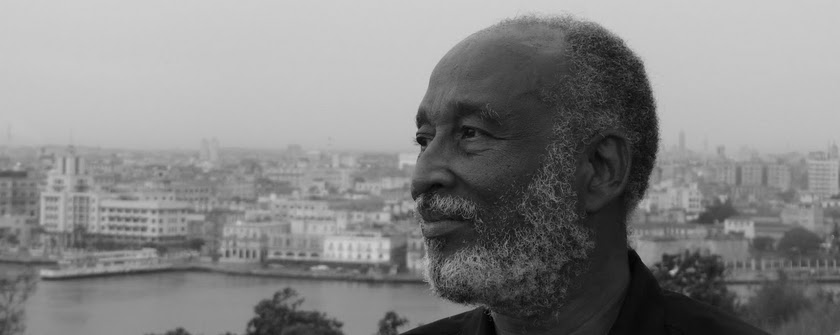In his personal Blog, http://estebanmoralesdominguez.blogspot.com/, Esteban Morales presents an analysis of the place of Afro-Cubans in Cuban society entitled .”FRENTE A LOS RETOS DEL COLOR COMO PARTE DEL DEBATE POR EL SOCIALISMO.”
Though his position and presentation seem to be well within the confines of acceptable discourse in Cuba, his argumentation is challenging. He calls for open analysis of the race issue at all levels, including the National Assembly and the Party Congress. He advocates “Affirmative Action” to rebalance the historic wrongs and injustices faced by Afro-Cuban citizens.
A.R.
Esteban Morales Domínguez
By Juan O. Tamayo
Black Cubans, already with the worst jobs and lowest salaries, will need “affirmative action” as the government tries to slash its inflated payrolls, a black Havana economist and former Communist Party member wrote Wednesday.
Esteban Morales, 68, made it clear in his lengthy essay that he supports Cuba’s “extraordinarily humanist” revolution and believes it took great pains to outlaw racism and provide equal opportunities for blacks over the past 52 years.
An economist who has written previously on race, he also attacked black Cubans who criticize the revolution as racist, saying they have embraced a U.S. strategy for sparking a “political confrontation” that would change the island’s regime.
In unusually direct language, however, Morales also complains that blacks rank at the bottom of several economic measurements, that Cuban schools do not teach courses on race, and that government socio-economic statistics should be broken down by skin color.
He was “separated” from the Communist Party last year for a similarly harsh essay in which he warned that a burgeoning string of corruption scandals was a bigger threat to the country’s stability than “the counterrevolution.”
Morales’ latest essay essentially argues that questions about race must be a priority for the Raul Castro government as it tries to fix the stagnant economy by slashing state spending – on jobs and subsidies — and allowing more private enterprise.
Blacks and mestizos “have always historically been the least qualified, the most disadvantaged in the workplace, with the worst jobs, the lowest salaries and the lowest retirement benefits,” Morales wrote in his 4,311-word essay, published in his eponymous blog.
Castro himself spoke of the need to increase the number of blacks and women in leadership positions during a speech last month to a Communist Party congress last month. The 2002 census shows 65 percent of Cubans identify themselves as white, and 35 percent as black or mestizo.
Morales went well beyond that, noting that fewer blacks than whites have relatives abroad who can send them cash remittances. He added that black Cubans in Florida also earn less – and therefore can send less to the island – because of U.S. racism.
Blacks and mestizos on the island also have a harder time finding well-paying jobs and tend to “take refuge … in illegal activities, prostitution and pimping, the illegal re-sale of products,” he noted. They make up 57 percent of the prison population, he added.
Morales’ essay notes that Cuba faces many challenges in race relations but adds that he would focus only on four, — starting with the need to create an array of school courses on modern-day racism.
“How is it possible that in a multicolor nation like Cuba … there’s no scientific treatment of those problems” he wrote . University-level education is “especially plagued by prejudices on the racial issue, weak institutional attention to it, ignorance and even fear of studying it.”
Cuba’s National Statistics Office (ONE) should include racial breakdowns when it reports economic and social data such as unemployment, salaries, housing conditions, education levels and life expectancy, Morales noted in his second challenge.
In his third, he urged Cubans to demand equal racial representation in all fields, and in his last he urged Cuba to embrace “the so-called affirmative action” as a way “to balance out the different historical points of departure for the racial groups that today make up our society.”
Cuban government officials have long cringed at the possibility of using affirmative action on the island, arguing that it would explicity admit that the revolution had failed to eradicate race-based discrimination.
Morales’ harshest criticism went to Carlos Moore, a black exile who has attacked Cuba’s leadership as almost exclusively white and argued that blacks were denied the most visible jobs when Cuba opened its doors to foreign tourism in the 1990s.
Morales alleged that some of Moore’s publications were financed by groups that received CIA money. Moore, a black rights activist now living and teaching at a university in Brazil, could not be reached immediately for comment.
Read more: http://www.miamiherald.com/2011/05/12/2213836/black-economist-says-cuba-needs.html#ixzz1MFkcZZ00


